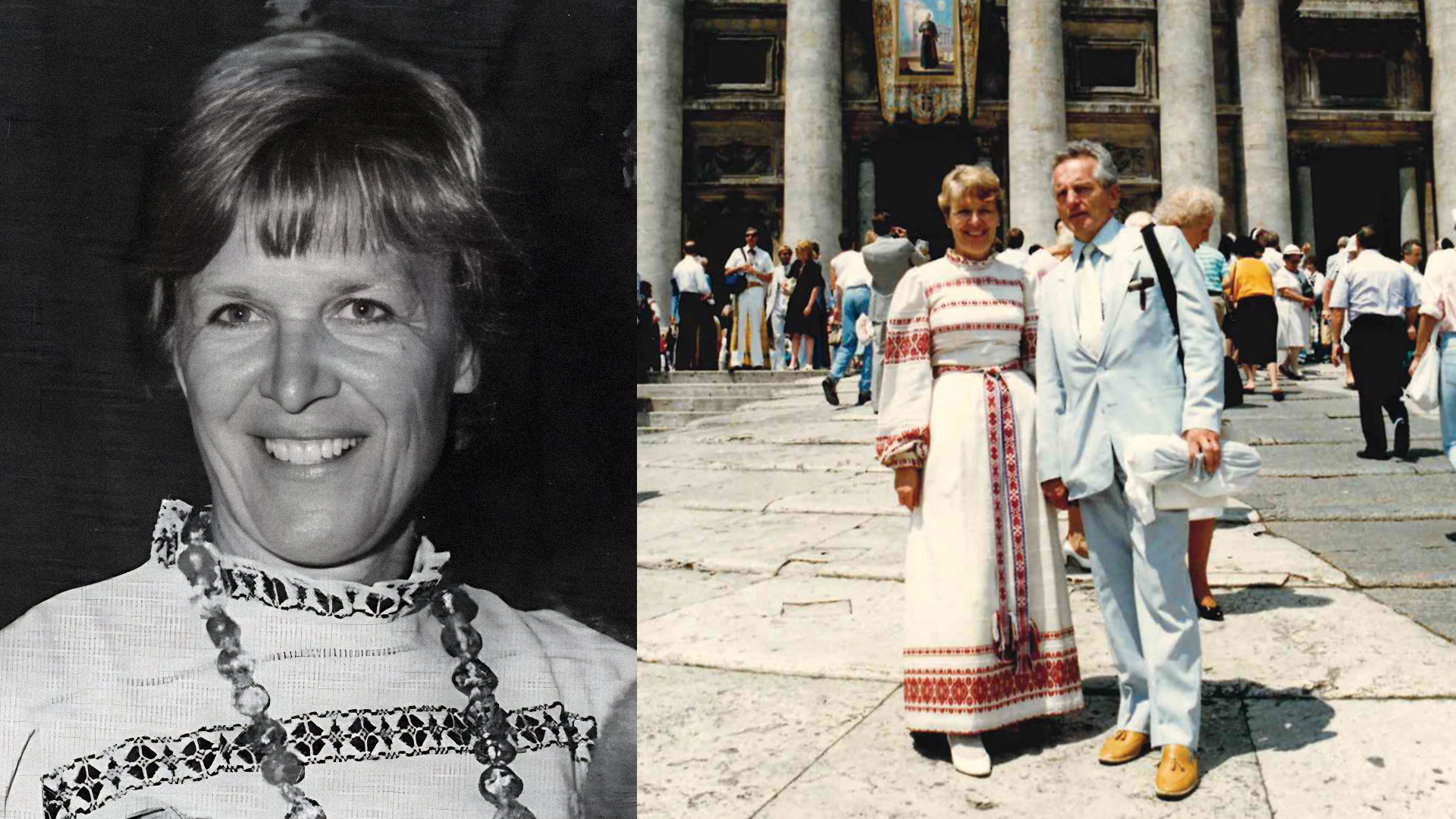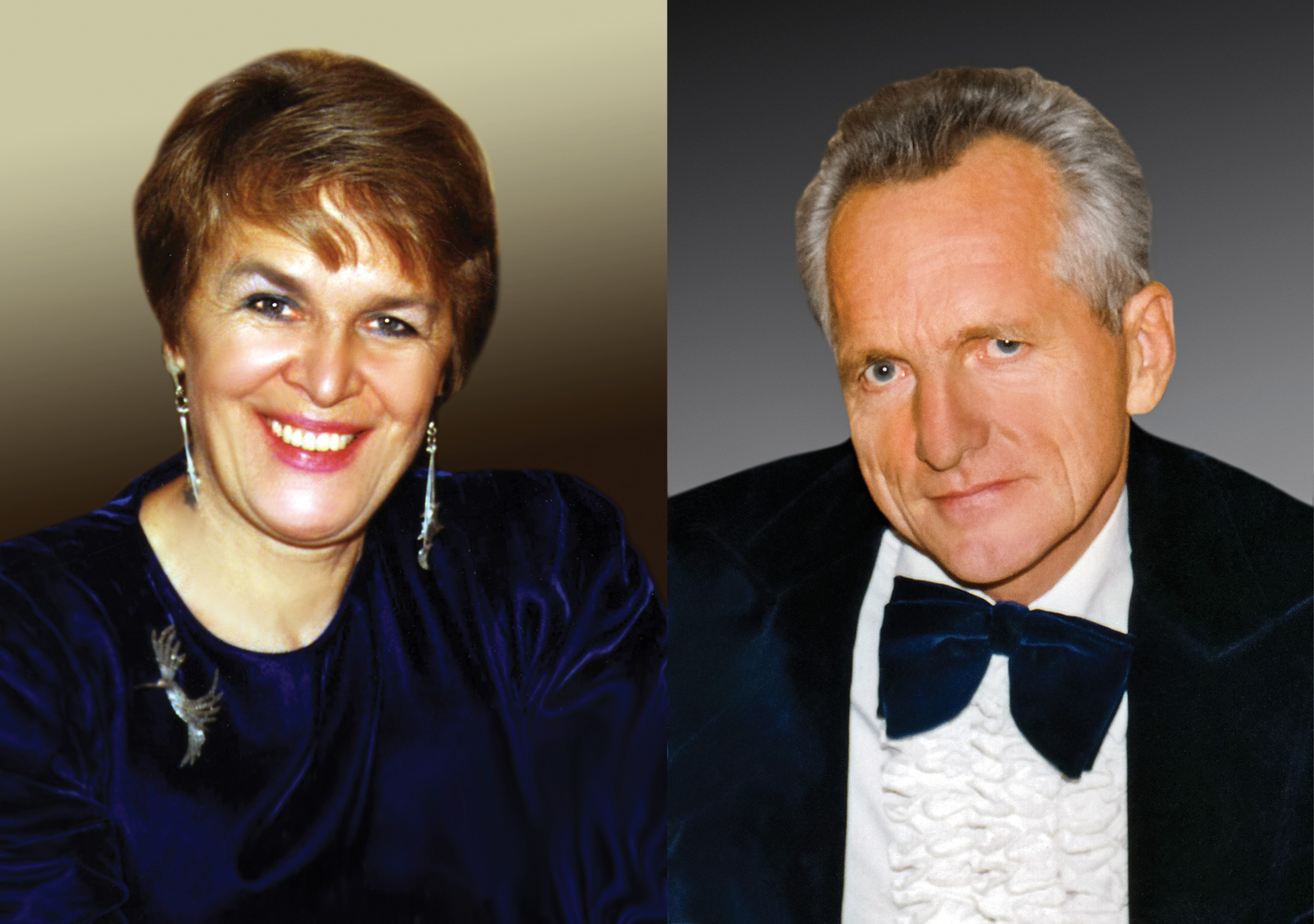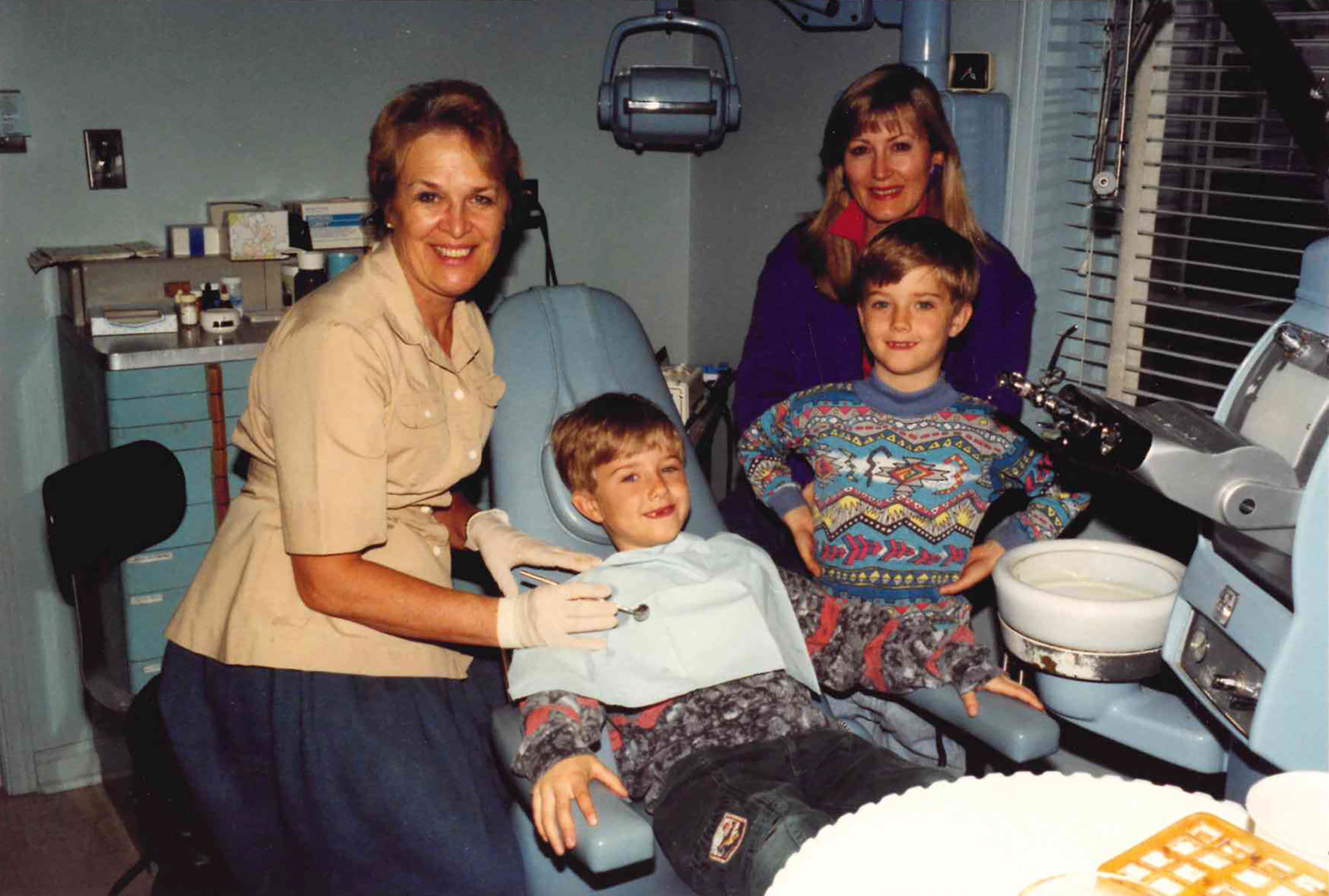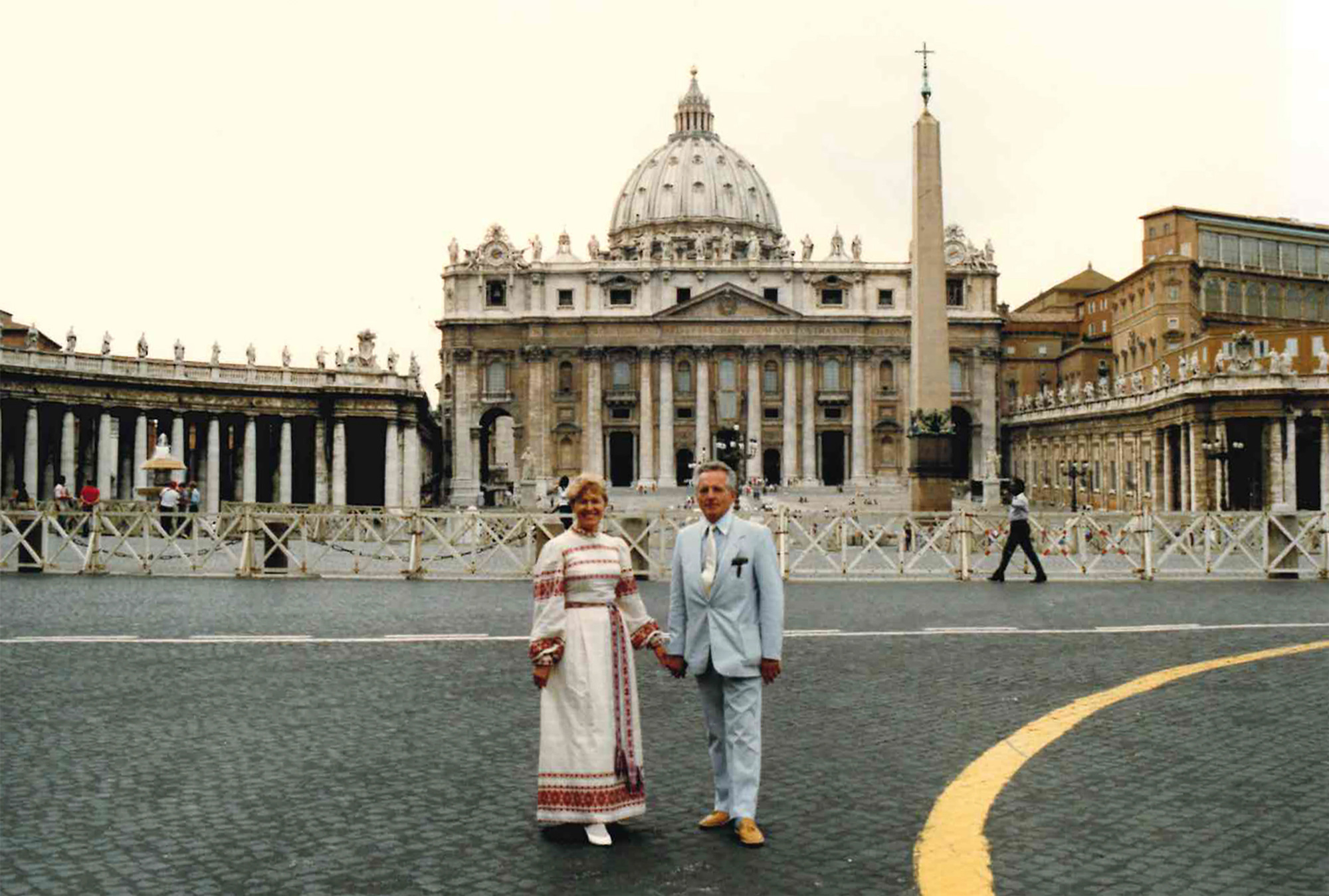A Bequest to the VU Foundation by Dentists – A Much-Needed Gift and a Meaningful Act
 An extraordinary event took place in the history of the philanthropic Vilnius University (VU) Endowment Fund. Lithuanian Canadian dentists Angelė and Sigitas Kazlauskas bequeathed CAD 7 million (about EUR 4.7 million). “I hope that this significant financial gift will serve as inspiration to encourage others in Lithuania to follow the example of Angelė and Sigitas Kazlauskas,” says Algirdas Pacevičius Pace, the executor of Dr Angelė M. Kazlauskas’ will. Who are these philanthropists who were forced to leave Lithuania during the Soviet era and who continued supporting their homeland in various ways?
An extraordinary event took place in the history of the philanthropic Vilnius University (VU) Endowment Fund. Lithuanian Canadian dentists Angelė and Sigitas Kazlauskas bequeathed CAD 7 million (about EUR 4.7 million). “I hope that this significant financial gift will serve as inspiration to encourage others in Lithuania to follow the example of Angelė and Sigitas Kazlauskas,” says Algirdas Pacevičius Pace, the executor of Dr Angelė M. Kazlauskas’ will. Who are these philanthropists who were forced to leave Lithuania during the Soviet era and who continued supporting their homeland in various ways?
Lithuanian Canadian dentists and philanthropists bequeathed CAD 7 million (about EUR 4.7 million) to the philanthropic VU Endowment Fund. The value of the fund has now doubled to EUR 9 million as a result of the new contribution. The majority, 90 per cent, of the donation (around EUR 4.2 million) is being used to set up the Angelė and Sigitas Kazlauskas sub-fund, whose return on investment will ensure continued funding for the development of paediatric dentistry at VU, as well as the improvement of dentistry studies and research. Up to ten per cent of the donation goes towards strengthening the activities of the VU Foundation, as well as increasing its visibility and expansion in North America.
Hard road in pursuit of a dream
Dr Angelė Matildė Kazlauskas (maiden name Kuolaitė) was born in 1935 in the village of Peikštėnai, Biržai district municipality, into a family of Lithuanian intellectuals. Angelė was forced to leave Lithuania when she was just nine years old. Her family, fleeing the Soviet occupation, was taken by Latvian fishing boats along with several other refugee families to the island of Gotland in Sweden when a storm raged in the Baltic Sea.
Later, in 1949, Angelė emigrated to Canada with her mother and sister. Starting out in Canada was not easy – Angelė's parents had to give up a lot for their daughters to pursue a higher education. But the effort paid off – in 1959, Angelė graduated with honours from the University of Toronto, being one of only three women (out of about 150 students in the programme) to study dentistry at that time; she acquired the specialisation of an oral surgeon.
In the same year, she married her former classmate, Dr Sigitas Pranas Kazlauskas, an odontologist who also originated from the Biržai region. Together, they established their private dentistry clinic in Oakville, Canada, where they successfully continued to practice odontology for 65 years, providing dental services to thousands of patients, most of whom were of Lithuanian origin.
Angelė and Sigitas Kazlauskas often worked pro bono—they treated their compatriots for free, took them into their homes, and transferred medicines, medical instruments, and other supplies to Lithuania through them. They also set up a charity and sponsorship foundation in Canada that supported the provision of dentistry services to orphans and underprivileged people in Lithuania.
Ongoing support for and solidarity with Lithuania
Since the restoration of Lithuania’s independence, dentists have visited Lithuania almost every year, seeking further ways to support the development of Lithuania's future dentists by inviting eminent specialists in the field to help introduce the most advanced methods of dentistry practice at the time. Their aim was also to assist financially those seeking advanced training or residency studies in dentistry at renowned Western universities.
The poet-playwright Stasys Santvaras described the dedication of dentists to Lithuania: “During this period, Angelė and Sigitas Kazlauskas were confronted with the heartbreaking reality of the lack of medical supplies in Lithuania. Very worried, Angelė contacted the International Red Cross. When she found out that medical supplies could only be sent to the Red Cross in Moscow and not directly to Lithuania, she realised that the only way to help at that time was to deliver the medical supplies in person. To ensure that aid to Lithuania would continue, a new project was implemented in Toronto – “S.O.S. Lietuva” was established. The Kazlauskas family said that the money would be raised both through individual donations and fund-raising events.”
In addition to their professional activities, the couple was actively involved in the Lithuanian community of Toronto. Together, they danced in the Lithuanian Canadian folk dance group “Gintaras” and participated in the Lithuanian Song and Dance Celebrations in the US, Canada, and Lithuania.
Sigitas passed away in 2005 and was buried in the cemetery of Legailiai village, Biržai region, Lithuania. Angelė died in Canada in 2020. Her remains were brought back from the US and reburied in Lithuania, in the same cemetery as her husband.
After Sigitas' death, Angelė laid down in her will a wish that her family's assets be given to support organisations in Lithuania after her death. She appointed the Lithuanian Canadian lawyer Algirdas Pacevičius Pace as trustee of her estate, who, while executing her will, decided to allocate part of the estate to establish a sub-fund in the name of the patron family of the VU Foundation.
On Wednesday, lawyer Pacevičius visited VU and shared his memories of Angelė and Sigitas Kazlauskas, their activities, and their connection to Lithuania; he also talked about the philanthropic traditions in Canada.
Can you share some memories of Angelė and Sigitas Kazlauskas? How does the Lithuanian Canadian community remember them?
Angelė and Sigitas Kazlauskas were successful career professionals in odontology who were, at the same time, very warm and approachable to everyone. Their extraordinary love and respect for each other, their involvement in the activities of Lithuanian organisations such as the Scouts and the Toronto folk dance group “Gintaras”, their generous financial support for the organisations of the Lithuanian Canadian community, and their infinite willingness to help Lithuania in its restoration is preserved in the memory of Lithuanians living in Toronto. Everything they did was done with passion. And, of course, most of them remember Angelė at various Lithuanian gatherings, diligently photographing the participants and capturing the events.’
Could you tell us more about the activities of the charity and sponsorship foundation established by Dr Angelė Kazlauskas, which supports the provision of odontology services to orphans and the disadvantaged in Lithuania?
Angelė and Sigitas set up a charity and sponsorship foundation in Canada to raise funds for their charitable activities in Lithuania. Their goal was to set up several odontology clinics in Biržai, Palanga, and Vilnius, which would be staffed by doctors who had completed the residency studies they funded, and also to provide support for disadvantaged families, especially children and orphans.
What do you think Angelė and Sigitas Kazlauskas would say if they could see that their bequest is going to serve the development of dental science and better access to treatment in Lithuania?
They were both extremely dedicated to their professional work, but their love for Lithuania determined their life's mission—to contribute to Lithuania's prosperity and the well-being of its people. The instructions outlining Angelė’s wishes in her will also reflect this. Using the funds accumulated in their lifetime for these purposes would be the ultimate fulfilment of their aspirations and a source of great joy for both of them.
Is the support of Lithuanian organisations a common practice in the Lithuanian Canadian community, which you also belong to?
I wouldn't say that this is a widespread phenomenon. These days, the support is mainly in the form of financial support for various Lithuanian Canadian community organisations, helping to preserve the Lithuanian identity in the diaspora. However, it should be noted that Lithuanian Canadians have generously supported the restored State of Lithuania for many years; in a short period, they raised CAD 1 million, which was used to purchase the Lithuanian Embassy building in Brussels.
Bequeathing assets after death, not only to relatives but also to beneficiaries, is rather rare in Lithuania. How do these traditions differ in North America (Canada and the USA)? Is this a widespread practice?
Philanthropy is deeply rooted in the Canadian and US cultures. Financially successful, established individuals often donate large sums of money to hospitals, universities, museums, and research institutions. Some of them also make significant contributions to pet care organisations.
Why do you think people choose this way of philanthropy in particular?
Some of these sponsors feel obliged to support their Alma Mater, which has provided them with the education that has helped them reach the pinnacle of their professional careers; others are doing so as a way of thanking medical institutions for treating them or their relatives. It is the continuity of their activities, the desire to perpetuate their name or that of their family. In addition, the Canadian government supports such charitable acts with significant tax incentives.
Is this the first time in your professional career that, as a trustee of an estate, you are now contributing to something meaningful and useful for society? How do you feel about fulfilling this noble mission?
In more than 40 years as the head of the “Pace Law Firm” that I founded, I have provided legal assistance in the administration of numerous estates and have been the trustee of some of them. Will usually specify to whom the testator is distributing their assets, but sometimes, it is necessary to consult the trustees of the estate when they, in accordance with Canadian law, are left with the right to distribute the deceased person’s estate at the discretion of the executors.
As I know very well what Angelė's aspirations were, it gives me particular joy to know that the major part of her estate will be used in the activities of the prestigious educational institution – Vilnius University – to improve the training of new dentists, carry out scientific research in dentistry, and thus make dental treatment more accessible to the entire population of Lithuania, especially those for whom Angelė and Sigitas were so concerned – children, orphans, and families in need of financial support.
I hope this significant financial gift will inspire others in Lithuania to follow Angelė and Sigitas Kazlauskas's example.


